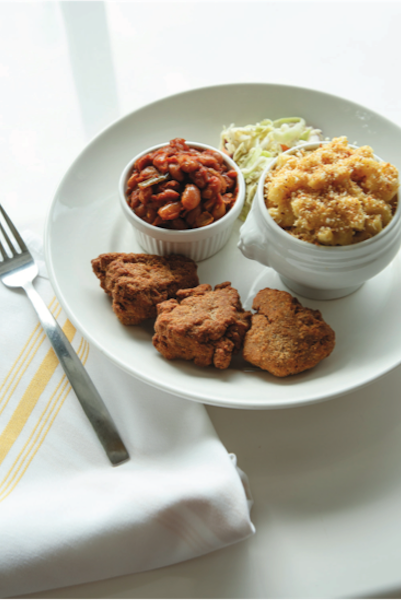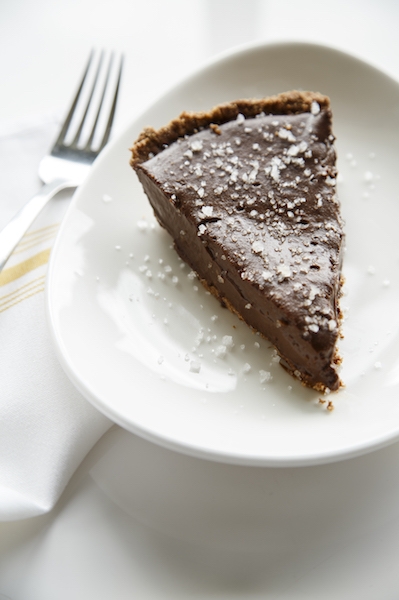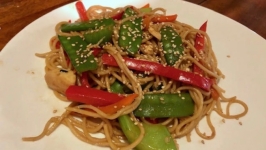The Roots of Comfort
Regardless of culture, age or background, all people find commonality around comfort food because it has the unique ability to stir something unspoken within them.
Comfort food is not necessarily about the food itself, but how the food makes you feel. For some, comfort food is a source of warmth on a crisp day. For others, the ultimate satisfying meal is a revisit of a family favorite that sparks memories of childhood.
I propose a different approach to preparing comfort classics: infusing mindfulness into our traditions and our food. We can continue to honor rich, bold flavors and satisfying textures, but also eat food that is compassionate, environmentally sound and oh, happens to be a rich source of vitamins, minerals and fiber.
And where can a home cook find a happy balance between indulgence and nourishment? Plants. And plant-based comfort food is out there, people. It can be as delicious and (dare I say it?) perhaps more so than animal-based dishes.
Long relegated to the salad plate, vegetables are rarely thought of as the star of a family barbeque, a Thanksgiving feast or an Easter dinner. But consider a tattered recipe scratched on an index card by your grandma. Instead of basing the dish on pork butt, flank steak and heavy cream, what if you viewed the dish through a kaleidoscope of garden-fresh vegetables? You may be pleasantly surprised if you attempt a reinterpretation of a classic dish, and your guests will be delighted too.
As a vegan chef and restaurant owner, I enjoy challenging bacon directly and calling it out with a coconut substitute. Mac and cheese? Try pumpkin sauce on your noodles. Is fried chicken your weakness? What about breading cauliflower and baking it? Fettuccine alfredo? Cashews make a velvery roux and topped with mushrooms, your dish will beat out any dairy based sauce.
What may be surprising to home cooks who dabble in vegan cooking is how much fun it is to experiment with plants, and there are endless possibilities. Aquafaba, which is the protein-rich liquid derived from canned chickpeas, has properties similar to egg whites and can be whipped into a meringue to top pies, or even in cocktails that call for egg whites.
Plant-based cooking seems to be the first and last frontier in the kitchen. Many food writers say they judge chefs, not on how they prepare meat, but how they prepare vegetables. Our simian ancestors gathered fruits and nuts, and now we break out the spiralizer and make zucchini noodles that resemble pasta. And why not? More color on the plate means more health, more compassion, better environmental results and, as Marcel Proust penned, allows us to engage with "celestial hues indicat[ing] the presence of exquisite creatures... pleased to assume vegetable form."
Yes, he was talking about asparagus.
Consider taking up the cause for more plants and fewer animals to be served up on the plate. Make it delicious, but make it vegan by finding the true comfort that comes from unlocking the vast potential that lies in plants.








